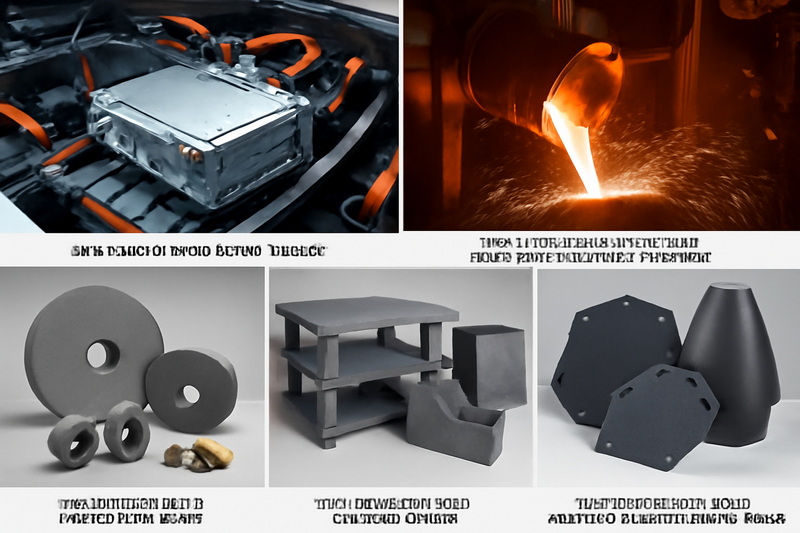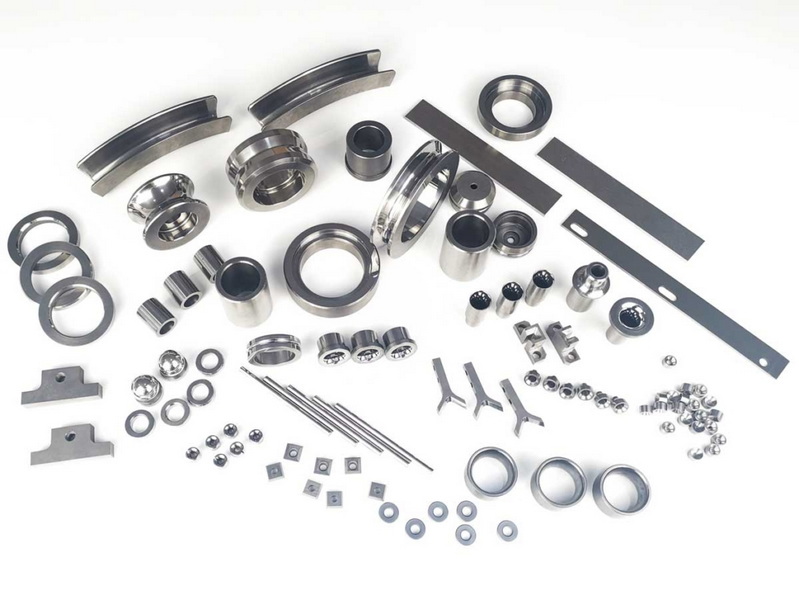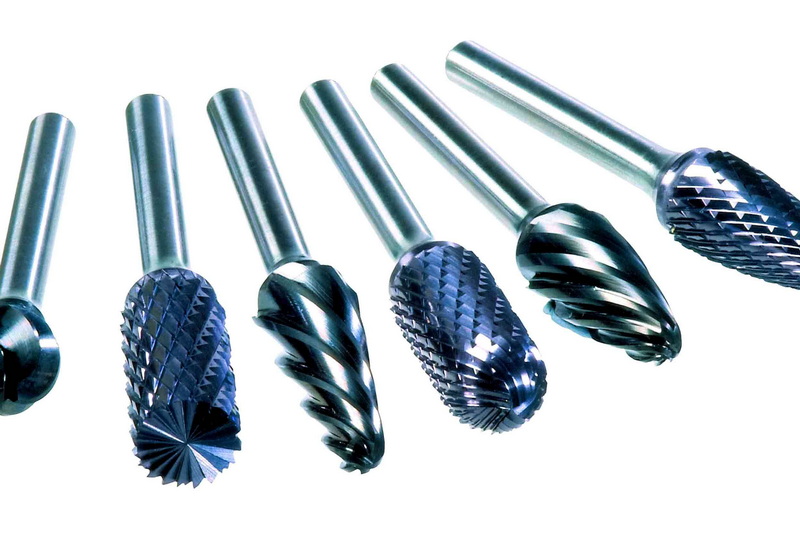Content Menu
● Introduction to Silicon Carbide
● Silicon Carbide Production in India: An Overview
● Major Applications of Indian Silicon Carbide Products
>> 1. Power Electronics and Semiconductors
>> 2. Metallurgical and Foundry Applications
>> 3. Abrasives and Cutting Tools
>> 4. Refractory and High-Temperature Applications
>> 5. Defense and Aerospace
>> 6. Electronics and Optoelectronics
>> 7. Environmental and Energy Applications
>> 8. Consumer and Specialty Applications
● Advantages and Challenges of Silicon Carbide
>> Key Advantages
>> Challenges
● The Future of Silicon Carbide Production in India
>> Emerging Applications in Silicon Carbide
>> Silicon Carbide in Energy Storage Technologies
>> Research and Development Initiatives in India
>> Environmental Impact and Sustainability
● Conclusion
● FAQ: Major Questions about Indian Silicon Carbide Products
>> 1. What makes silicon carbide superior to traditional silicon in power electronics?
>> 2. How is silicon carbide used in the automotive industry?
>> 3. What are the main challenges in silicon carbide production?
>> 4. Which industries in India are the largest consumers of silicon carbide products?
>> 5. How is India positioned in the global silicon carbide market?
Silicon carbide (SiC) stands at the forefront of advanced material innovation, offering a unique blend of properties that make it indispensable across a wide spectrum of industries. As silicon carbide production in India accelerates, the nation is emerging as a pivotal player in the global SiC ecosystem, supplying products that power everything from electric vehicles to advanced military systems. This article explores the major applications of Indian silicon carbide products, highlighting their transformative impact on technology, industry, and sustainability.

Introduction to Silicon Carbide
Silicon carbide is a compound of silicon and carbon, renowned for its exceptional hardness, high thermal conductivity, chemical stability, and ability to operate in extreme environments. These attributes have propelled its use in diverse sectors, making it a cornerstone material for modern engineering challenges.
Silicon Carbide Production in India: An Overview
India is rapidly investing in silicon carbide production, establishing state-of-the-art manufacturing plants and fostering innovation through strategic collaborations. Major investments are underway, with both domestic and international firms setting up end-to-end SiC production lines, including ingots, wafers, MOSFETs, and modules. This growth is fueled by robust demand in automotive, renewable energy, electronics, and defense sectors, positioning India as a key supplier in the global market.
Major Applications of Indian Silicon Carbide Products
1. Power Electronics and Semiconductors
Silicon carbide's superior electrical properties have revolutionized power electronics, enabling more efficient energy conversion, higher voltage operation, and reduced power losses.
- Electric Vehicles (EVs): SiC-based MOSFETs and diodes are integral to EV powertrains, inverters, and fast chargers, delivering higher efficiency, faster charging, and extended driving ranges.
- Renewable Energy Systems: SiC devices are essential in solar inverters, wind turbines, and energy storage systems, enhancing reliability and reducing energy losses.
- Industrial Automation: Motor drives, power converters, and automation systems benefit from SiC's high efficiency and thermal stability, supporting continuous operation in demanding environments.
- Telecommunications: SiC semiconductors support 5G infrastructure and high-frequency network equipment, ensuring efficient power amplification and signal processing.
2. Metallurgical and Foundry Applications
Indian silicon carbide is widely used as an additive in steel and iron manufacturing, offering several metallurgical advantages:
- Deoxidizer and Inoculant: SiC acts as a deoxidizer, improving steel quality and facilitating precise chemical composition control.
- Cost Reduction: It provides a cost-effective source of silicon and carbon, reducing reliance on more expensive alloys.
- Enhanced Iron Control: In foundries, SiC improves the properties of cast, malleable, and ductile irons, leading to superior mechanical performance.
3. Abrasives and Cutting Tools
Thanks to its extreme hardness, silicon carbide is a preferred material for abrasives and cutting tools:
- Grinding and Polishing: SiC grains are used in grinding wheels, sandpapers, and polishing pads for metals, ceramics, stone, and glass.
- Mining and Drilling Tools: SiC-tipped tools withstand harsh mining environments, ensuring longevity and efficiency in resource extraction.
- Construction Applications: SiC is employed in saw blades, drills, and wear-resistant components for building and infrastructure projects.
4. Refractory and High-Temperature Applications
Silicon carbide's stability at high temperatures makes it ideal for refractory products:
- Kiln Furniture: SiC components support ceramics and metals during high-temperature firing processes, offering durability and thermal shock resistance.
- Furnace Linings: Used in steel, glass, and chemical industries, SiC linings withstand aggressive thermal and chemical environments.
- Heating Elements: SiC rods serve as efficient electric heating elements in industrial furnaces, maintaining performance over extended cycles.
5. Defense and Aerospace
The military and aerospace sectors leverage silicon carbide for its strength, lightweight nature, and resilience:
- Armor Systems: SiC ceramics are used in personal and vehicle armor, providing high protection with reduced weight.
- Aerospace Components: SiC's low thermal expansion and high rigidity make it suitable for satellite mirrors, structural frames, and high-performance brake discs.
- Nuclear Applications: SiC is utilized as cladding in nuclear reactors and as a containment material for radioactive waste, thanks to its neutron absorption and stability.
6. Electronics and Optoelectronics
Silicon carbide's semiconductor properties are harnessed in advanced electronic and optical devices:
- LEDs and Photodetectors: SiC substrates enable the fabrication of high-efficiency light-emitting diodes and optical sensors.
- Quantum Devices: SiC hosts point defects that serve as single-photon sources, supporting emerging quantum information technologies.
- High-Frequency Devices: SiC is used in RF and microwave components for telecommunications and radar systems.
7. Environmental and Energy Applications
SiC's chemical and thermal resilience support its use in sustainable technologies:
- Water Treatment: SiC membranes are employed in filtration systems for industrial and municipal water purification.
- Catalyst Supports: SiC's oxidation resistance and surface area make it an excellent support for catalytic reactions in chemical processing and emission control.
8. Consumer and Specialty Applications
Beyond heavy industry, silicon carbide finds its way into everyday and specialized products:
- Fishing Rod Guides: SiC rings provide durability and low friction, enhancing casting performance and longevity.
- Food Processing: SiC's non-toxicity allows its use in food-safe components and equipment.
- Printmaking and Art: SiC grit is used in carborundum printmaking, enabling unique artistic effects.

Advantages and Challenges of Silicon Carbide
Key Advantages
- High Temperature Resistance: Maintains structural integrity at temperatures up to 2700°C.
- Exceptional Hardness and Strength: Outperforms traditional ceramics in wear and impact resistance.
- Superior Electrical and Thermal Conductivity: Ideal for high-power and high-frequency electronics.
- Corrosion Resistance: Stable in acidic, alkaline, and oxidative environments.
- Lightweight: Offers strength with reduced mass, especially valuable in automotive and aerospace applications.
Challenges
- High Production Cost: Advanced manufacturing processes increase the cost of SiC products.
- Processing Complexity: Difficult to machine and shape, particularly for intricate components.
- Brittleness: While strong, SiC can be brittle under certain conditions, limiting its use in high-impact environments.
The Future of Silicon Carbide Production in India
With government support, strategic investments, and a growing ecosystem of manufacturers, silicon carbide production in India is set for exponential growth. The country's focus on electric mobility, renewable energy, and advanced manufacturing ensures a robust demand pipeline for SiC products. Indian firms are poised to not only meet domestic requirements but also become significant exporters of high-quality silicon carbide solutions.
Emerging Applications in Silicon Carbide
As research progresses, new applications for silicon carbide are emerging rapidly. These include its use in biomedical devices due to its biocompatibility and chemical inertness, making it suitable for implants and prosthetics. Additionally, SiC is being explored for use in advanced sensors for environmental monitoring and industrial safety, where its robustness under extreme conditions is invaluable.
Silicon Carbide in Energy Storage Technologies
Silicon carbide is playing a growing role in energy storage, particularly in battery technology. SiC-based components improve the efficiency and lifespan of batteries used in electric vehicles and grid storage, contributing to more sustainable energy solutions.
Research and Development Initiatives in India
India is investing heavily in R&D to enhance silicon carbide production techniques and develop novel applications. Collaborative projects between academia and industry are fostering innovation, focusing on cost reduction, quality improvement, and expanding the range of SiC-based products.
Environmental Impact and Sustainability
The production and use of silicon carbide in India are increasingly aligned with sustainability goals. Efforts to minimize environmental impact include adopting cleaner manufacturing processes and recycling SiC materials. This commitment supports India's broader environmental objectives while promoting the growth of the SiC industry.
Conclusion
Indian silicon carbide products are driving innovation across multiple sectors, from powering the next generation of electric vehicles to enabling breakthroughs in defense, energy, and electronics. As silicon carbide production in India continues to expand, the nation is well-positioned to become a global leader in this critical material, supporting sustainable development and technological advancement worldwide.

FAQ: Major Questions about Indian Silicon Carbide Products
1. What makes silicon carbide superior to traditional silicon in power electronics?
Silicon carbide offers higher breakdown voltage, better thermal conductivity, and lower switching losses compared to traditional silicon. This enables devices to operate at higher voltages, temperatures, and frequencies, making SiC ideal for demanding power electronics applications.
2. How is silicon carbide used in the automotive industry?
In the automotive sector, silicon carbide is used in electric vehicle inverters, chargers, and traction motors. Its efficiency and thermal stability allow for faster charging, longer driving ranges, and more compact power systems, contributing to the advancement of electric mobility.
3. What are the main challenges in silicon carbide production?
The primary challenges include high manufacturing costs due to complex processes, difficulties in machining and shaping SiC, and its inherent brittleness, which can limit use in some high-impact environments.
4. Which industries in India are the largest consumers of silicon carbide products?
The largest consumers include the automotive, renewable energy, metallurgy, defense, aerospace, and electronics industries. Each sector leverages SiC's unique properties for applications ranging from power electronics to high-temperature components.
5. How is India positioned in the global silicon carbide market?
India is rapidly emerging as a significant player in the global silicon carbide market, with major investments in production facilities and a focus on high-growth sectors like electric vehicles, renewable energy, and advanced electronics. This positions India as both a key supplier and innovator in the international SiC landscape.















